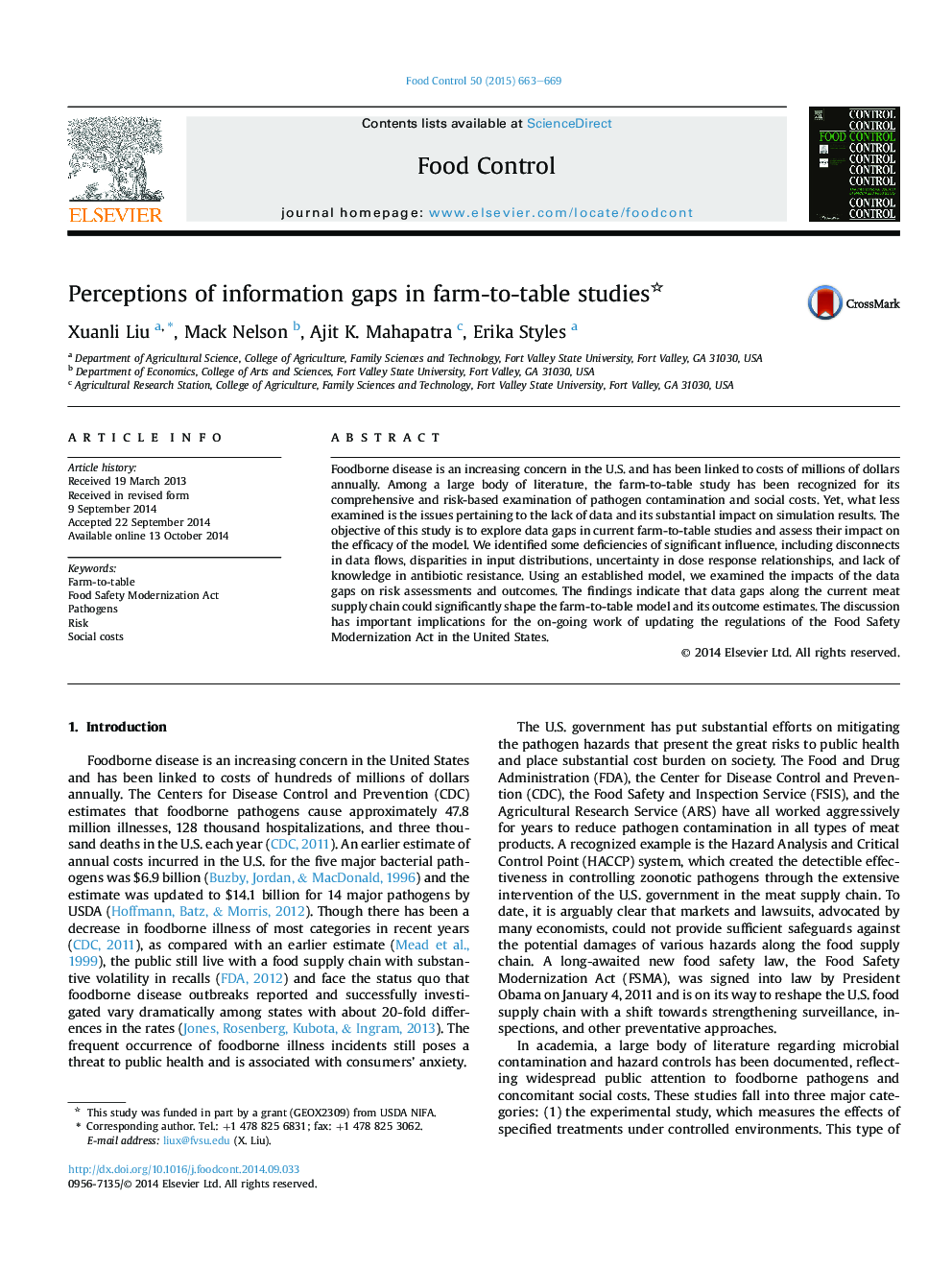| Article ID | Journal | Published Year | Pages | File Type |
|---|---|---|---|---|
| 6391127 | Food Control | 2015 | 7 Pages |
â¢Food Safety Modernization Act calls for applications with the farm to table study.â¢Some deficiencies of current studies in information are identified.â¢The impact of variation in assumed data is estimated.â¢Cautious interpretations of the current studies are recommended.
Foodborne disease is an increasing concern in the U.S. and has been linked to costs of millions of dollars annually. Among a large body of literature, the farm-to-table study has been recognized for its comprehensive and risk-based examination of pathogen contamination and social costs. Yet, what less examined is the issues pertaining to the lack of data and its substantial impact on simulation results. The objective of this study is to explore data gaps in current farm-to-table studies and assess their impact on the efficacy of the model. We identified some deficiencies of significant influence, including disconnects in data flows, disparities in input distributions, uncertainty in dose response relationships, and lack of knowledge in antibiotic resistance. Using an established model, we examined the impacts of the data gaps on risk assessments and outcomes. The findings indicate that data gaps along the current meat supply chain could significantly shape the farm-to-table model and its outcome estimates. The discussion has important implications for the on-going work of updating the regulations of the Food Safety Modernization Act in the United States.
